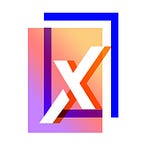Play-to-Earn’s Thoughts on Decentralized Identity and GameFi
The gaming industry has experienced incredible growth over the past few years, expanding by 23% in 2020 compared to the previous year, while the integration of the gaming industry with blockchain has seen “Play-to-Earn” the heat.
However, many gamers and developers are skeptical about the benefits blockchain can bring to games, which has led to a recent backlash from some studios that are integrating NFTs. Demonstrating clear use cases that benefit from blockchain solutions is important to demonstrate that the technology can enhance games players love.
The gaming world needs digital identities
By using blockchain technology, including a decentralized identity solution (DID) for back-end processing of the game, players can truly own and be rewarded with in-game assets in unprecedented ways. Through DID, players can interact with a safe and reliable An online identity is associated that can be transmitted across multiple different virtual worlds.
The studio is taking the gaming world to a whole new level with the application of blockchain technology, which can help ensure that in-game items are traceable and that the value of items is not just locked in the game. Binding the blockchain to in-game items such as weapons, skins, and other collectibles allows them to retain a new and unique form of value while maintaining security . This means that if a game ends up being removed or sold to another company, players can always retain its value . By linking a digital record of a game asset to an individual’s decentralized identity, players can prove they own the item and can export that record to the game if needed. In this way, DID can facilitate interactions between different games based on blockchain technology , providing players with diverse benefits.
Comprehensively improve game security performance
The DID solution is a blockchain infrastructure that enables back-end verification of games to verify the identity of players, confirm the traceability and validity of their in-game assets , and ultimately improve player security . As the gaming industry grows, so does the need to confirm ownership of in- game items such as treasures, trading cards, and other collectible quest items , and blockchain can help users meet those needs.
Personality is becoming increasingly important to Gen Z, who make up a large part of the gaming community. According to reports, in 2021, 87% of Gen Z will play video games, and 65% of them will purchase virtual items in games. By adding ownership records to the immutable blockchain on-chain ledger, players can truly prove they own the items, which makes the transaction process clearer and more secure.
Players often trade in-game items such as skins, skills, etc. through forums, social channels, and commercial platforms because in many games there is no way to exchange items for real money, and there is no infrastructure to actually verify items. DID’s easy-to-navigate, fast KYC checks for games enable fair trade and protect players from scams and more. This means that players transacting can identify each other and at the same time know the legitimacy of the counterparty . Importantly, if players decide to transact through social channels or forums outside of the game, they can still request DID verification to prove the legitimacy of the transaction object, keeping the transaction safe .
Open the door to a new world in the Metaverse
Web3 will eventually allow players to seamlessly move between the different games and virtual worlds that make up the metaverse , meaning players may be able to take their avatars from games like Call of Duty and bring them into World of Warcraft To complete the quest, they can trade a purchased sword to a Decentraland player, the possibilities are endless, but in order for these to happen, players need to have an interoperable digital identity that includes wallets , data , and personal information , decentralized Avatars can help players travel through multiple virtual worlds with a consistent identity.
Source: Decentraland official website
DID solutions can help players own and fully control their personal data, enabling secure login to different systems without exposing their private information. This level of security is key to the game, ensuring that every transaction in the game is verifiable , securely recorded and stored , and most importantly, cannot be tampered with . Players spend countless hours building their game profiles, skills, and collecting items, and DID helps gamers secure these resources while protecting their privacy. DIDs allow players to create stronger online identities and choose how, when, and with whom they share their data.
The global gaming market is expected to reach $250 billion by 2025, and there will be a huge increase in players who want to have secure, interoperable identities across multiple virtual worlds and fully control their gaming assets. Using decentralized identities, a whole new gaming ecosystem can be established where players truly own ownership , while increasing security, protecting personal privacy and increasing trust. This will make the industry better, creating a more transparent arena where players can trust the security of game assets, real and virtual identities. It is believed that as long as it is properly used, decentralization will shape the future of the game industry.
